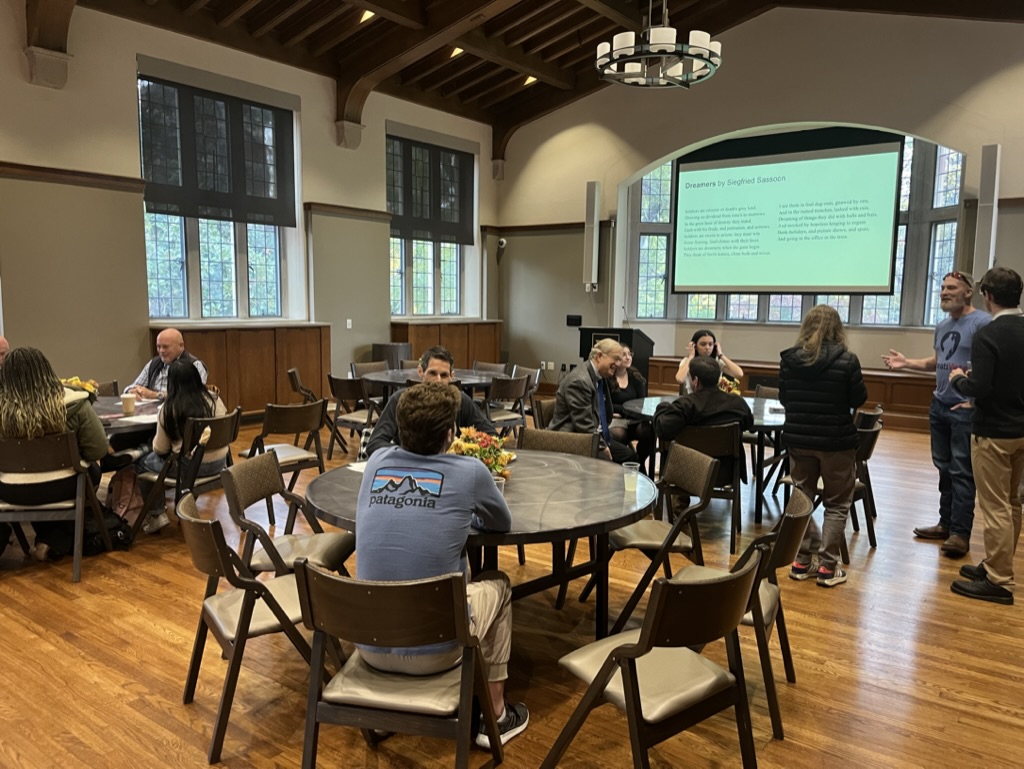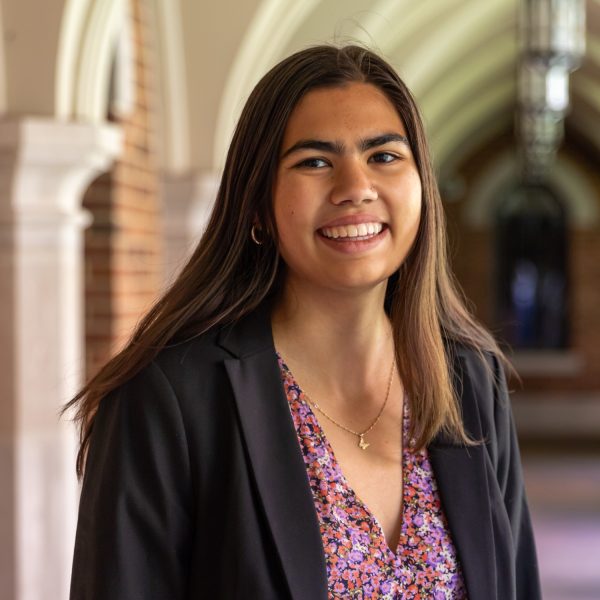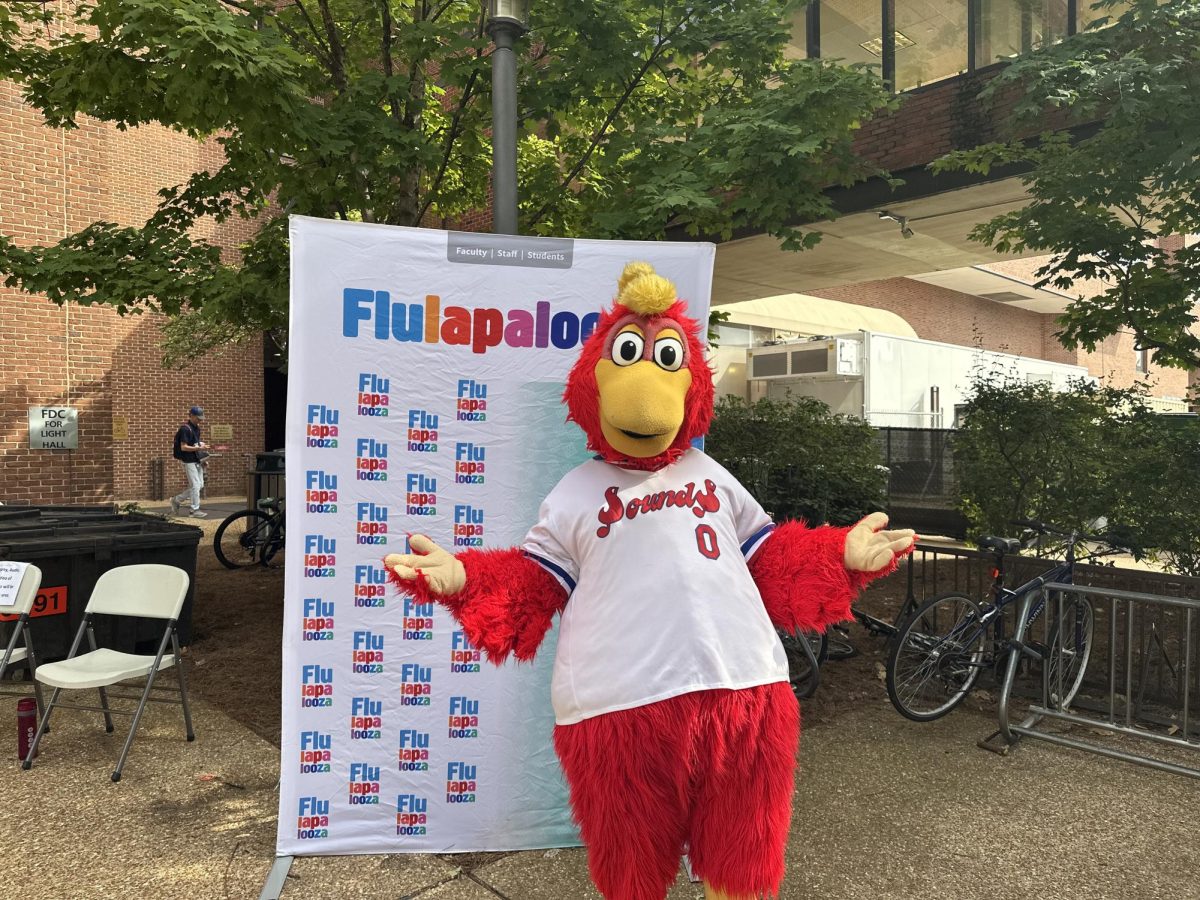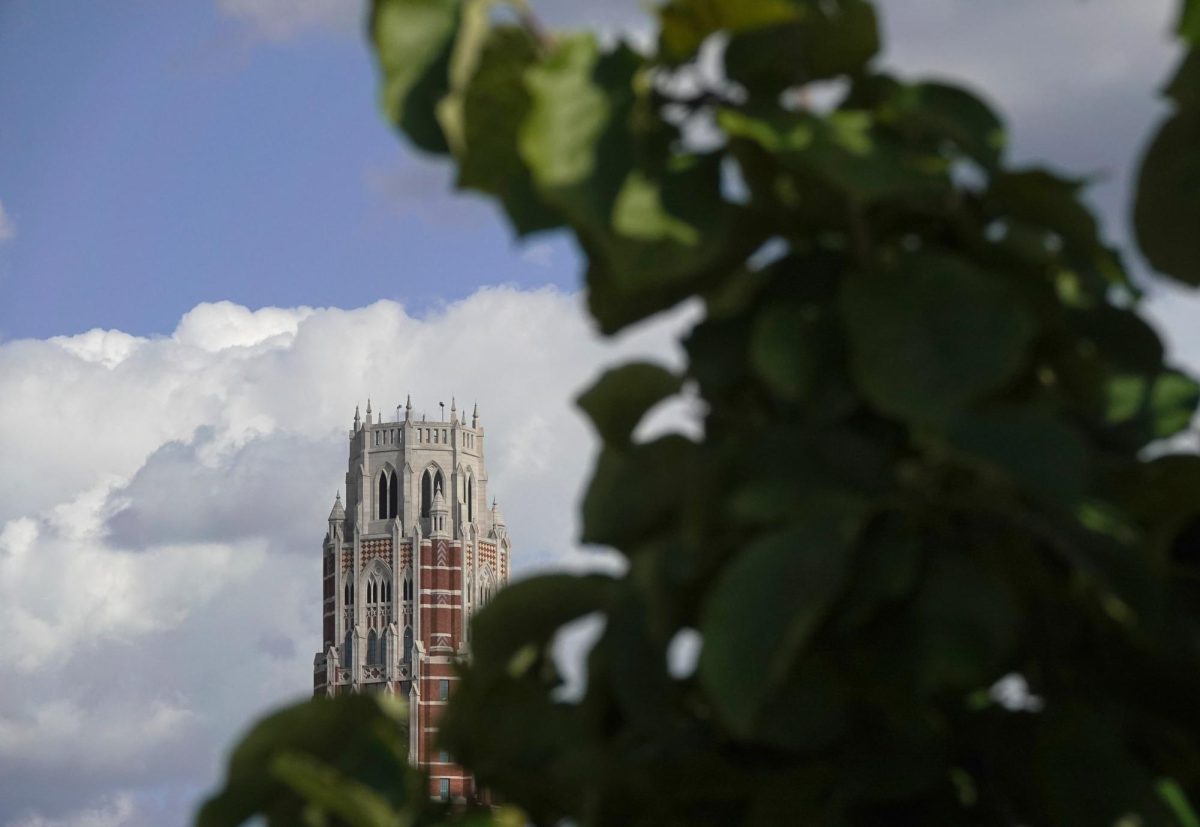Vanderbilt for Veterans hosted a group of Nashville veterans for a student discussion on Nov. 15. The event aimed to extend traditional Veterans Day celebrations by fostering interaction among veterans, faculty and students. For the first half of the event, four veterans introduced themselves and spoke to the group about their experiences in the military. The event then shifted into a conversational session where attendees could ask veterans questions about their service.
Senior Justin Badt, president of Vanderbilt for Veterans, opened the event by explaining the organization’s hope to expand community outreach and create open dialogue between veterans and students rather than just thanking them for their service.
“We wanted to throw veterans, faculty, students and whoever else in the room together to see what would happen in sharing stories, sharing experiences and having everyone teach each other,” Badt said. “We hope that everyone can benefit and get something out of Veterans Day, rather than just giving [the veterans] a pat on the back.”
Badt also pointed out that the room in which the event was held, Alumni Hall 206, was specifically significant because it contains a memorial honoring former Vanderbilt students who were drafted during World War II.
“It’s special to be able to be in a space to honor those who are connected to our university and our military, respecting those who made the ultimate sacrifice,” Badt said.
Badt then introduced Chris King, advisor for the Health Professions Advisory Office, who served in the Air Force as part of Operation Enduring Freedom and Operation Inherent Resolve. He added to Badt’s sentiment about the event, appreciating the respect and praise veterans often receive but expressing excitement about the two-way street the discussions would open up.
“I feel there are life lessons that I learned in the four years of my Air Force career that go unnoticed sometimes. Sometimes the best thank you that veterans can ever be given is a platform to share how others can take our life lessons from the [military]. That’s the goal here today,” King said.
A few of the invited veterans then spoke briefly about their experiences in military service. Art Jacobs grew up surrounded by World War II veterans and felt when he hit adulthood that it was now “his turn,” going on to enlist in the army. Jacobs eventually applied for flight school and volunteered for medical evacuations in Vietnam.
“We were picking up wounded [people, soldiers] every day and it was pretty brutal. You can’t imagine what I’ve seen. But it was probably the most rewarding job I’ve ever had because in all of the chaos, I was doing something constructive,” Jacobs said.
Jacobs would then go on to be promoted to a Special Forces group, serving as a NATO Operations and Intelligence Officer, and then eventually was promoted to captain, returning to Vietnam as a Cobra gunship pilot. After his service, Jacobs worked as a salesperson, climbing up the ranks to ultimately found his own company, Valkyrie Consulting.
The next veteran, Robert Driskill, is an economics professor at Vanderbilt. Driskill described how he was drafted into the US Army in 1968. He was a radio telephone operator for his Lieutenant when his unit hit an IED, and he was wounded, earning him a Purple Heart. Soon after, he was injured more severely and earned another Purple Heart as well as a medical discharge.
After his service, he was able to get into a VA special program that took him to graduate school through the VA because of his disability, earning his Ph.D. in Economics from Michigan State. He mentioned that his biggest takeaway from the army was the feeling of camaraderie, which he described as “the sense of a unit of the people that care deeply about you.”
Phillip Daniel spoke next, describing how he served in the Navy as a trained aircraft mechanic and Navy Aircrewman. Daniel worked on a helicopter platform and later transitioned to a fixed-wing aircraft platform, serving on tours of duty on the USS George Washington and USS John F. Kennedy aircraft carriers. He was deployed to the Persian Gulf as part of Operation Iraqi Freedom and Operation Enduring Freedom. He now works as an industrial hygienist in research and development at the Nashville VA.
Seth Cole, who served in the National Guard and then on active duty, spoke last. Cole went to Iraq for four months, before getting hit by a grenade. He spoke about his struggles in recovering from his injuries and adjusting to civilian life, both mentally and physically. In 2018, Cole’s friend signed him up for CreatiVets, an organization that empowers veterans to find healing through art and music. Cole described how much restoration came out of understanding his experiences through visual arts and songwriting. He now works at CreatiVets as the Veteran Outreach coordinator, giving veterans from all over the country the opportunity to tell their stories.
“When people ask that hard question, ‘What did you go through in the military?,’ they’re able to hand their art over to them,” Cole said. “To see people interpret [our art and experiences], and see a beautiful light to it. It’s life-changing.”
The rest of the event focused on fostering one-on-one conversations with the veterans while poetry written by people in combat looped on the projector screen.Senior Luke Kopco attended the event and spoke about the power of having conversations with veterans.
“Having the opportunity to attend such an event and have meaningful conversations with veterans was an honor and a privilege,” Kopco said. “I believe that it is important now, more than ever, to not only thank the veterans in our community for their service but also give them a platform to speak about what that service looked like for them.”
Senior Niklas Cooper, secretary for Vanderbilt for Veterans, described his hope of making the discussion an annual event.
“As a military child myself, when I came to campus, I could not find many organizations that were military-friendly or that were bridging military-connected members in the community,” Coope said. “When I was interviewing for the position on the executive board, I talked to the previous president about starting more of these conversations. Hopefully, this marks the beginning of an annual tradition.”






